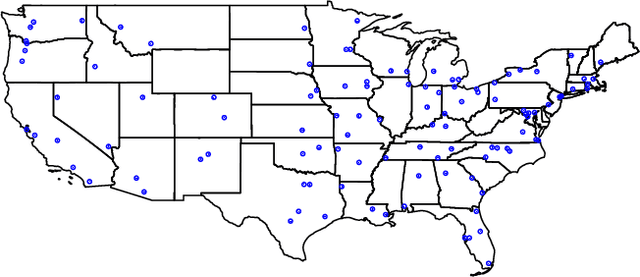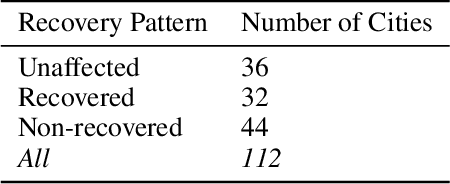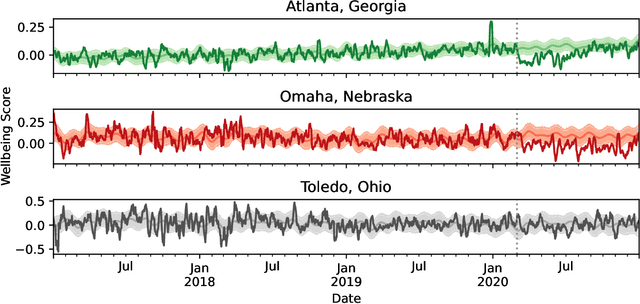We Are in This Together: Quantifying Community Subjective Wellbeing and Resilience
Paper and Code
Aug 23, 2022



The COVID-19 pandemic disrupted everyone's life across the world. In this work, we characterize the subjective wellbeing patterns of 112 cities across the United States during the pandemic prior to vaccine availability, as exhibited in subreddits corresponding to the cities. We quantify subjective wellbeing using positive and negative affect. We then measure the pandemic's impact by comparing a community's observed wellbeing with its expected wellbeing, as forecasted by time series models derived from prior to the pandemic.We show that general community traits reflected in language can be predictive of community resilience. We predict how the pandemic would impact the wellbeing of each community based on linguistic and interaction features from normal times \textit{before} the pandemic. We find that communities with interaction characteristics corresponding to more closely connected users and higher engagement were less likely to be significantly impacted. Notably, we find that communities that talked more about social ties normally experienced in-person, such as friends, family, and affiliations, were actually more likely to be impacted. Additionally, we use the same features to also predict how quickly each community would recover after the initial onset of the pandemic. We similarly find that communities that talked more about family, affiliations, and identifying as part of a group had a slower recovery.
 Add to Chrome
Add to Chrome Add to Firefox
Add to Firefox Add to Edge
Add to Edge